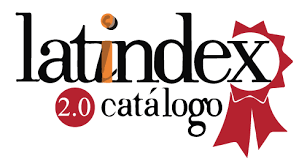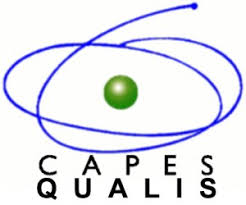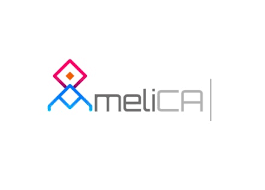About the Journal
- Focus and Scope
- Peer Review Process
- Open Access Policy
- Data Availability Policy
- Ethical Considerations
- Plagiarism Policy
- Sponsors
Focus and Scope
Revista IRICE is an electronic publication with a biannual periodicity and continuous frequency, edited by the Instituto Rosario de Investigaciones en Ciencias de la Educación (IRICE), affiliated with the Consejo Nacional de Investigaciones Científicas y Técnicas (CONICET) and the Universidad Nacional de Rosario (UNR), Argentina. Its aim is to contribute to knowledge within the fields of education. From an interdisciplinary perspective, its intention is to promote theoretical debate and disseminate research papers relevant to the educational domain.
Revista IRICE publishes research articles, dossiers, essays, bibliographic reviews, and other contributions in Spanish, English, or Portuguese, on topics related to Educational Sciences. Submitted works for publication must be original and comply with the standards of a scientific-academic journal.
Peer Review Process
Received manuscripts will be initially reviewed by the Editorial Board, which will ensure compliance with established editorial guidelines, and then by the Editorial Council, which will assess whether the contributions align with the focus and scope of the Journal. If this review yields negative results, the articles will be rejected. If the submissions successfully meet these criteria, they will be sent to specialists in the proposed thematic area for evaluation. All submissions will be evaluated by two external referees appointed by the Editorial Council, following the double-blind peer review system. Referees will provide their assessments using an evaluation form consisting of the following criteria: "Relevance of the topic to educational sciences", "Originality and relevance", "Clarity and precision of language", "Coherence", "Handling of specific bibliography", "Articulation of conclusions with the rest of the work", and "Adherence of article format to presentation standards." As a result of this process, referees will provide recommendations to: a) Publish without modifications, b) Publish with partial modifications (resubmitting or not to the referee), c) Not publish. When revisions are requested, authors will have a maximum of 30 days to resubmit the article, which will then be re-evaluated by peers or by the Editorial Council for final approval and subsequent publication.
In cases of significant divergences between assessments, manuscripts will be sent to a third evaluator. If necessary, the Editorial Board will mediate to reach a final decision.
Upon completion of the evaluation process and acceptance of the work, the Editorial Board will initiate its final formal editing, potentially requesting changes from the authors. Additionally, the Editorial Board reserves the right to make minor corrections without consulting the authors.
Once the editing process is complete, authors will be informed of the volume in which their article will be published.
Open Access Policy
This journal provides open, immediate, and free access to its content, without any cost or embargo restrictions, following an Open Access (OA) policy, under the principle that offering the public free access to research aids in greater global knowledge exchange. At no stage of evaluation or publication does Revista IRICE charge fees or costs, either for article processing or submission (article processing charges [APCs] / article submission charges).
Acceptance of works implies granting usage rights under the Creative Commons Attribution-NonCommercial-ShareAlike 4.0 International License. This license allows any user to read, download, share, copy, distribute, print, alter, transform, create derivative works, perform, and publicly communicate the work, search or link to the full texts of articles, track them for indexing, pass them as data to software, or use them for any other legal purpose.
Works published in Revista IRICE will be deposited in the Institutional Repository of the Universidad Nacional de Rosario, Comunidad IRICE, Subcomunidad Revista IRICE, thereby increasing the visibility of both the publication and its authors.
Data Availability Policy
Research data includes those obtained or utilized by researchers during the research process, which enable validation and underpin new knowledge. They can be physical or digital, raw or analyzed, qualitative or quantitative. Digital data can exist in various formats and may be stored on different media.
To promote scientific values of replication, verification, re-analysis, and reinterpretation, Revista IRICE requires that the data obtained during the research described in the article be published. This requirement is established in the "New criteria of quality and relevance for the evaluation and incorporation of publications into the Basic Core of Argentine Scientific Journals" (RESOL-2019-1183-APN-DIR#CONICET) based on Law 26.899.
Research data from articles accepted for publication in Revista IRICE must be deposited, curated, and published in the RDA-UNR Academic Data Repository. Each data publication has a unique DOI identifier and corresponding citation. In case there are limitations preventing data sharing, please refer to the Sensitive and Confidential Data Policy.
To facilitate the curation and publication of research data, RDA-UNR provides documentation and a team of curators to assist in meeting the requirement described here. You can find out how to start using the repository and request a virtual meeting with specialized curators.
RDA-UNR complies with the international FAIR principles, allowing data to be findable online and have a permanent location on the web through their DOIs. The repository facilitates the description of data so that it is understood how they were obtained and can be downloaded. Thus, data deposited in RDA-UNR can be integrated with other data and exchanged with other systems to optimize their reuse.
Once data are published, they must be cited in the bibliographic references of the article. Similarly, if data from other sources were used in the research itself, these should be cited in the references.
Ethical Considerations
The journal adheres to the Code of Conduct and Best Practices established by the Committee on Publication Ethics (COPE) (Code of Conduct and Best Practice Guidelines for Journal Editors and Code of Conduct for Journal Publishers). In compliance with this code, the journal will ensure the scientific quality of publications and proper responsiveness to the needs of readers and authors. The code is directed at all parties involved in the editorial process of the journal.
Plagiarism Policy
Revista IRICE is committed to the publication of original and unpublished works. To ensure originality, Revista IRICE subjects all received works to plagiarism and self-plagiarism detection tests using iThenticate software at various stages of the evaluation process.
Addressing other aspects that may qualify as plagiarism practices, the journal will request authors to declare that the submitted work has not been previously published or simultaneously submitted to other journals or editorial bodies for evaluation, and that the manuscript complies with the Author Guidelines determining the requirement of originality of the submitted works.
If plagiarism is detected, the original manuscript will be rejected for publication.
The journal considers plagiarism to be the presentation of words or ideas of other authors as one's own, i.e., those that do not give credit to the original author. Plagiarism can occur in direct or verbatim quotations or in indirect or paraphrased quotations. We detail some examples below:
Plagiarism practices in direct or verbatim quotations:
- Failure to indicate within quotation marks or in a separate paragraph (as appropriate) the text directly quoted from another work, omitting the authorship.
- The indication through quotation marks or a separate paragraph does not cover the entire extent of the text directly quoted.
Plagiarism practices in paraphrased or indirect quotations:
- Introduction of a paraphrased quotation without crediting the original author.
- Taking fragments from other texts and making minor changes to them, making the quotation not constitute a paraphrase.
- It is not possible to differentiate between the paraphrase and the author's own contributions.
The journal considers self-plagiarism to be the submission of a work already published in other editorial entities as a new research.




















